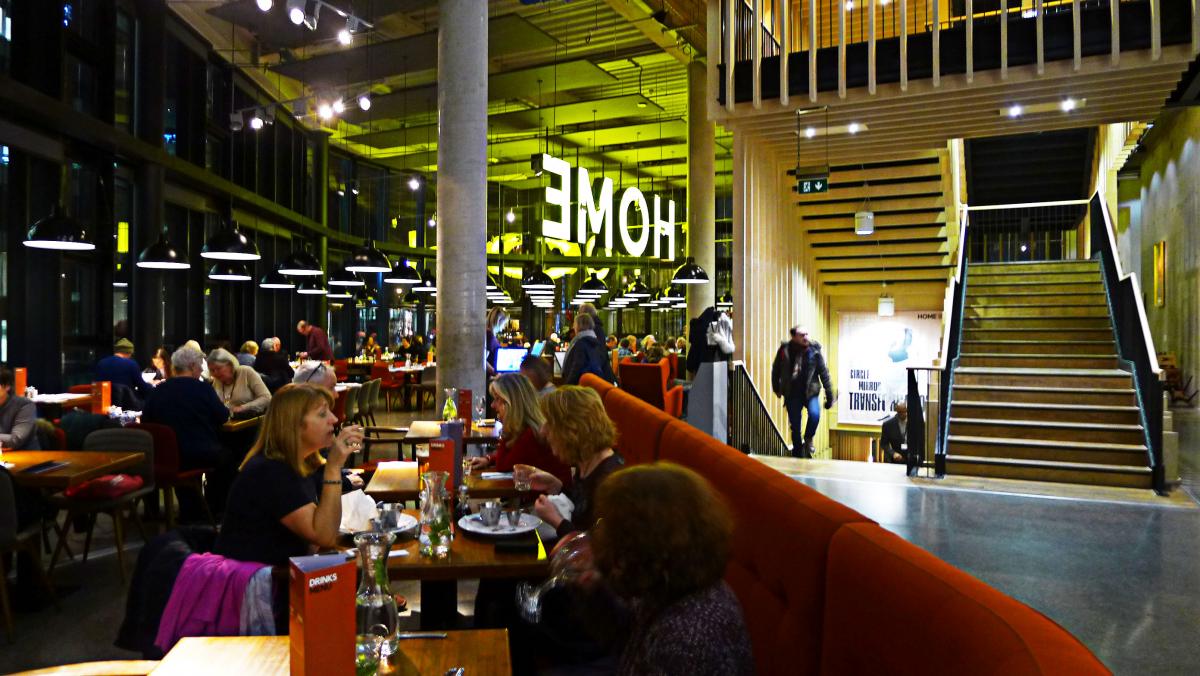By Lai del Rosario
At a time of rapid urban development and societal change, it is more important than ever, that citizens find a sense of place and belonging. Creative hubs offer a safe space that brings people from the creative, cultural and tech industries together. In the Philippines, these hubs could be artist-run spaces, coworking spaces, creative clusters, maker spaces or fab labs (fabrication laboratories). If you have ever been to events at 98B Collaboratory in Escolta or at ASpace in Makati, it would not be hard to imagine why these spaces are attracting artists, programmers, entrepreneurs and all kinds of creatives. It helps that these hubs often look ‘cool’ and have quirky interiors.
Creative hubs have different organisational models and objectives but they also share many qualities globally. They are often spaces for experimentation, artistic expression, peer-to-peer learning and incubation of ideas. They act as convenors, facilitating the transfer of knowledge and the cross pollination of different sectors and areas of expertise. This often leads to the creation of new value in goods, services and artistic practices – what some might call innovation. Artist-run spaces, like 98B Collaboratory provide a platform for exhibition and research to resident artists, while coworking spaces offer a low-cost communal office space for start-up entrepreneurs as they build their business. Both organisations provide networks, connections, sector expertise and other kinds of support that their members and audiences would likely need in order to advance their projects.
Creative hubs are also led by passionate, trusted and influential leaders, otherwise called creative hub managers. Hub managers aim to build a thriving community relevant to its audiences. They can simultaneously be artists, producers, art managers, directors or entrepreneurs. While ‘hub management’ is a 21st century job that needs no academic degree, it would nonetheless require multidisciplinary skills in operations, communication and PR, stakeholder management, entrepreneurship, and sector expertise or technical knowhow (depending on the hub’s core activities). Hub managers often assume this responsibility by chance, adapting and developing their job description as their organisations grow.

HUB MakeLab along Escolta, Manila (Photo by Recci Bacolor)
Creative hubs are also seen as spaces for launching enterprising new ideas and supporting the creative economy. This is quite significant, since the creative economy makes up 3 per cent of the world’s GDP and employ 29.5 billion people (CISAC, 2015). In the UK, the creative industries is the fastest growing sector and valued at £92 billion. The magazine Deskmag estimates that at least 1.2 million people globally worked at a co-working space in 2017.
There are other ways that hubs contribute to the economy. HOME, a state of the art cinema, theatre, art gallery and restaurant complex in Manchester, UK is a creative hub established in an area highly affected by the 2008 financial crash. It is a merger of two cultural organisations – Cornerhouse and Library Theatre Company – and its inception took advantage of low property value during the economic slump. Small arts organisations are most vulnerable to recession, according to Director Dave Moutrey. HOME, therefore, was built around the idea of a self-sustaining arts organisation. Recognising its economic potential, the City of Manchester funded over half of its construction cost.

HOME in the UK (Photo by the British Council)

HOME in the UK (Photo by the British Council)
Through its art programmes and activities, HOME has become a notable catalyst for Manchester’s urban regeneration, attracting international artists and visitors, as well as new businesses, to set up shop around the complex. This increased the area’s property value by 30 per cent within a year of its opening.
While creative hubs drive innovation and economic growth, their unique quality lies in their ability to effect social change. More than an average organisation, hubs often have a direct or indirect social impact, be it in terms of making the creative industries thrive, increasing community engagement or regenerating urban neighbourhoods.
Pineapple Lab, a performance and exhibition space in Makati and home to the producers of Fringe Manila, has developed a programme catering to the LGBTQ community. Pineapple Lab Director, Andrei Pamintuan, explains: “We provide a safe space for artistic expression for our homegrown and international LGBTQ artists – a platform where they can develop their own works, delve deeper in their own stories, and engage with audiences in a supportive environment, without feeling ‘othered’ or trivialised.”
Sam Reynolds is a London-based performer whose work promotes gender equality and inclusion by exploring themes on queerness, gender and sexual identity. Through a 2017 grant from Arts Council England and the British Council, he embarked on an artist residency at Pineapple Lab to develop new artistic work and organised performance workshops for drag, burlesque and circus artists. “It is truly fantastic to find a venue which understands you and your work, provides you with a platform, and helps you develop as an artist. Pineapple Lab allowed me to realise that there is definitely an interest in this kind of work here, and the Lab’s active efforts in cultivating it is truly exciting and hugely important. It has helped further my work here in the Philippines, and I am forever grateful,” shares Reynolds. Apart from economic growth and innovation, it is clear that creative hubs are equally important in fostering social inclusion.
Meanwhile, a series of studies in the UK and Southeast Asia, commissioned by the British Council, has found that creative hubs often encounter financial and operational challenges due to their often untested and fluid business models. A lack in skills among hub managers on business development, evaluation or sustainability measures is another vulnerability. In addition, low awareness on the part of policymakers, potential funders and city councils could result in a lack of responsive policies, funding schemes or affordable spaces to support creative hubs.
Investing in creative hubs means helping the start-ups, freelancers and artists that hubs are supporting everyday. If creative hubs are to thrive and grow, cities, governments, foundations, and corporations must realise their importance as catalysts for social, economic and cultural change. It is also crucial that we recognise hubs as complex structures with complex needs. Grants, seed funding and tax incentives at different stages of growth, as well as programmes addressing skills gaps among creative hub managers are just some ways to support them. Initiatives such as QBO, a coworking and incubation space co-funded by DTI, DOST, Ideaspace, and J.P. Morgan, have proven to be a successful model to boost the startup ecosystem in the Philippines.
In all this, it is important to keep in mind that the success of creative hubs may not always be measured in terms of profitable returns. We must equally recognise their social and cultural contributions, which are sometimes more valuable and praiseworthy.
Main image photo: 98B Collaboratory along Escolta, Manila (Photo by Recci Bacolor)
About the Author
Lai DEL ROSARIO is an art manager specialising in programme and international partnership development. She has over 10 years’ worth of experience in exhibition and project management, and currently heads British Council’s Arts and Creative Industries programme in the Philippines. She has worked and written publications on cross-cultural creative collaborations and culture-led urban development in Europe and Asia. Currently she works with several private and public institutions in the areas of sustainability, capacity building, and creative economy policy development. She has an MBA in Arts and Cultural Management from the Institut d’études supérieures des arts (IESA) and Paris School of Business, France.








